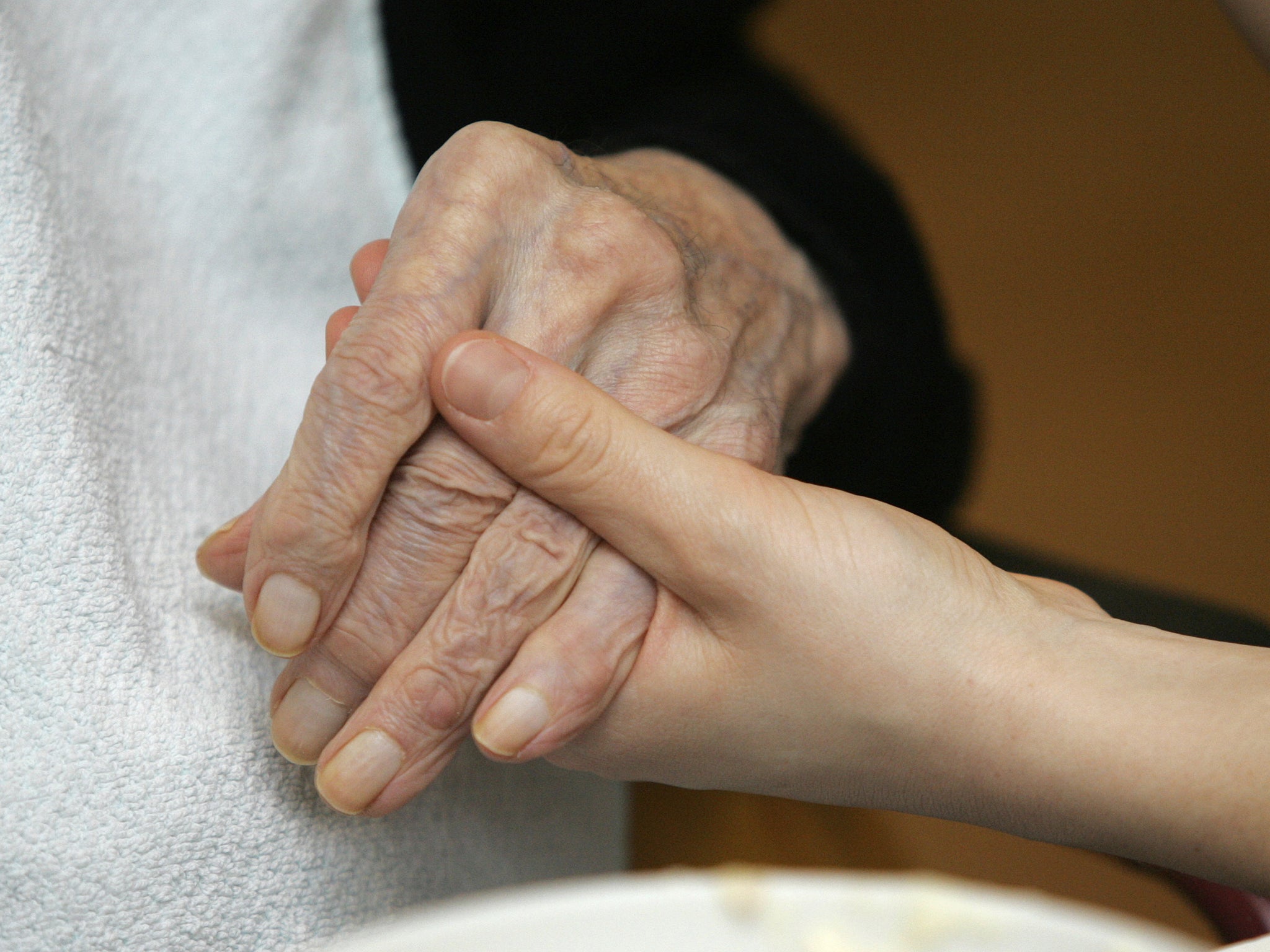Sleep problems? Scientists warn of possible early sign of Alzheimer's

Your support helps us to tell the story
From reproductive rights to climate change to Big Tech, The Independent is on the ground when the story is developing. Whether it's investigating the financials of Elon Musk's pro-Trump PAC or producing our latest documentary, 'The A Word', which shines a light on the American women fighting for reproductive rights, we know how important it is to parse out the facts from the messaging.
At such a critical moment in US history, we need reporters on the ground. Your donation allows us to keep sending journalists to speak to both sides of the story.
The Independent is trusted by Americans across the entire political spectrum. And unlike many other quality news outlets, we choose not to lock Americans out of our reporting and analysis with paywalls. We believe quality journalism should be available to everyone, paid for by those who can afford it.
Your support makes all the difference.Sleep loss can be an early warning sign of Alzheimer's, new research suggests.
The findings, from a study of apparently healthy volunteers, point the way to new methods of detecting and monitoring the disease, say scientists.
Evidence indicates that the link between sleep and Alzheimer's runs in two directions. Alterations in the brain caused by the disease may disrupt sleep, and poor sleep also promotes the changes.
Lead scientist Professor David Holtzmann, from Washington University School of Medicine in the US, said: “This link may provide us with an easily detectable sign of Alzheimer's pathology.
“As we start to treat people who have markers of early Alzheimer's, changes in sleep in response to treatments may serve as an indicator of whether the new treatments are succeeding.”
Sleep problems are common among people with full-blown Alzheimer's. The new research suggests they may also be a sign of early-developing disease and symptoms to come.
Previous animal studies conducted on mice have demonstrated a link between sleep loss and beta-amyloid plaques - lumps of protein in the brain that are a hallmark of Alzheimer's disease.
The new research involved 145 volunteers aged 45 to 75 who were showing no signs of memory loss or other dementia symptoms when enrolled.
Analysis of samples of the volunteers' spinal fluid showed that 32 participants had molecular markers of pre-symptomatic Alzheimer's.
The volunteers kept daily sleep diaries for two weeks, noting what time they went to bed and got up, the number of naps they took during the day, and other relevant information.
Daytime activity was tracked using movement sensors worn on the wrist.
Participants who had pre-clinical Alzheimer's had a “sleep efficiency” of 80.4%, compared with an average 83.7% for those without Alzheimer's markers.
People with early signs of Alzheimer's spent the same amount of time in bed as non-affected volunteers, but did not sleep as long. They also napped more often.
Signs of Alzheimer's became more common with deteriorating sleep quality, according to the research published in the journal JAMA Neurology.
Co-author Yo-El Ju, also from Washington University said : “When we looked specifically at the worst sleepers, those with a sleep efficiency lower than 75%, they were more than five times as likely to have pre-clinical Alzheimer's disease than good sleepers.”
The scientists are now conducting a new study on younger participants with sleep disorders.
Dr Ju added: “We think this may help us get a better feel for the way the connection flows - does sleep loss drive Alzheimer's, does Alzheimer's lead to sleep loss, or is it a combination? That will help us determine whether we can change the course of the disease with pharmaceuticals or other treatments.”
A separate study published today lends more support to the theory that lack of sleep is linked to weight gain and obesity.
Scientists found that sleeping just five hours a night for a working week and having unlimited access to food caused volunteers to gain an average of nearly two pounds.
Study leader Kenneth Wright, from the University of Colorado at Boulder, US, said: “Just getting less sleep by itself is not going to lead to weight gain. But when people get insufficient sleep, it leads them to eat more than they actually need.”
The research is published in the journal Proceedings Of The National Academy Of Science.
PA
Join our commenting forum
Join thought-provoking conversations, follow other Independent readers and see their replies
Comments